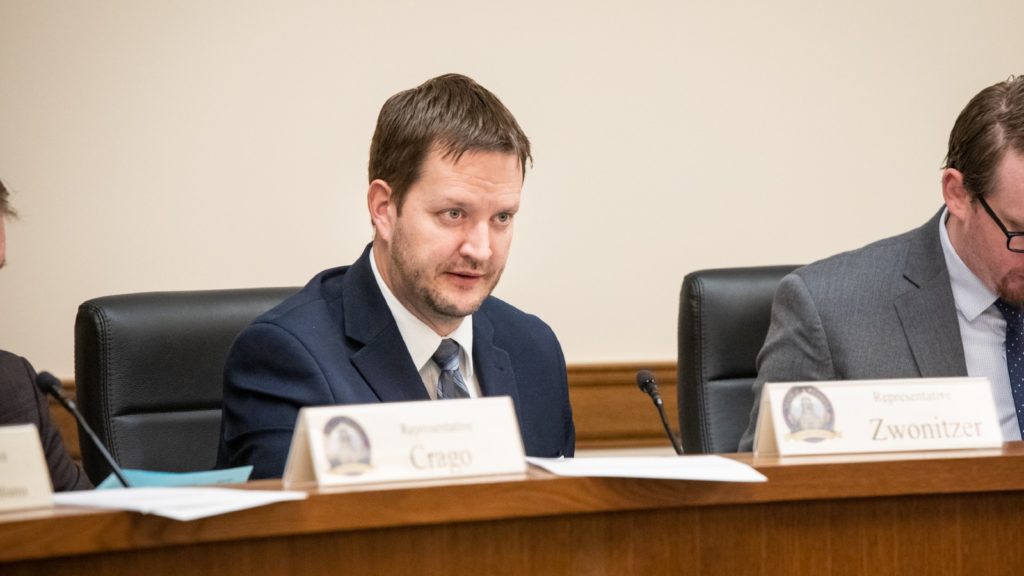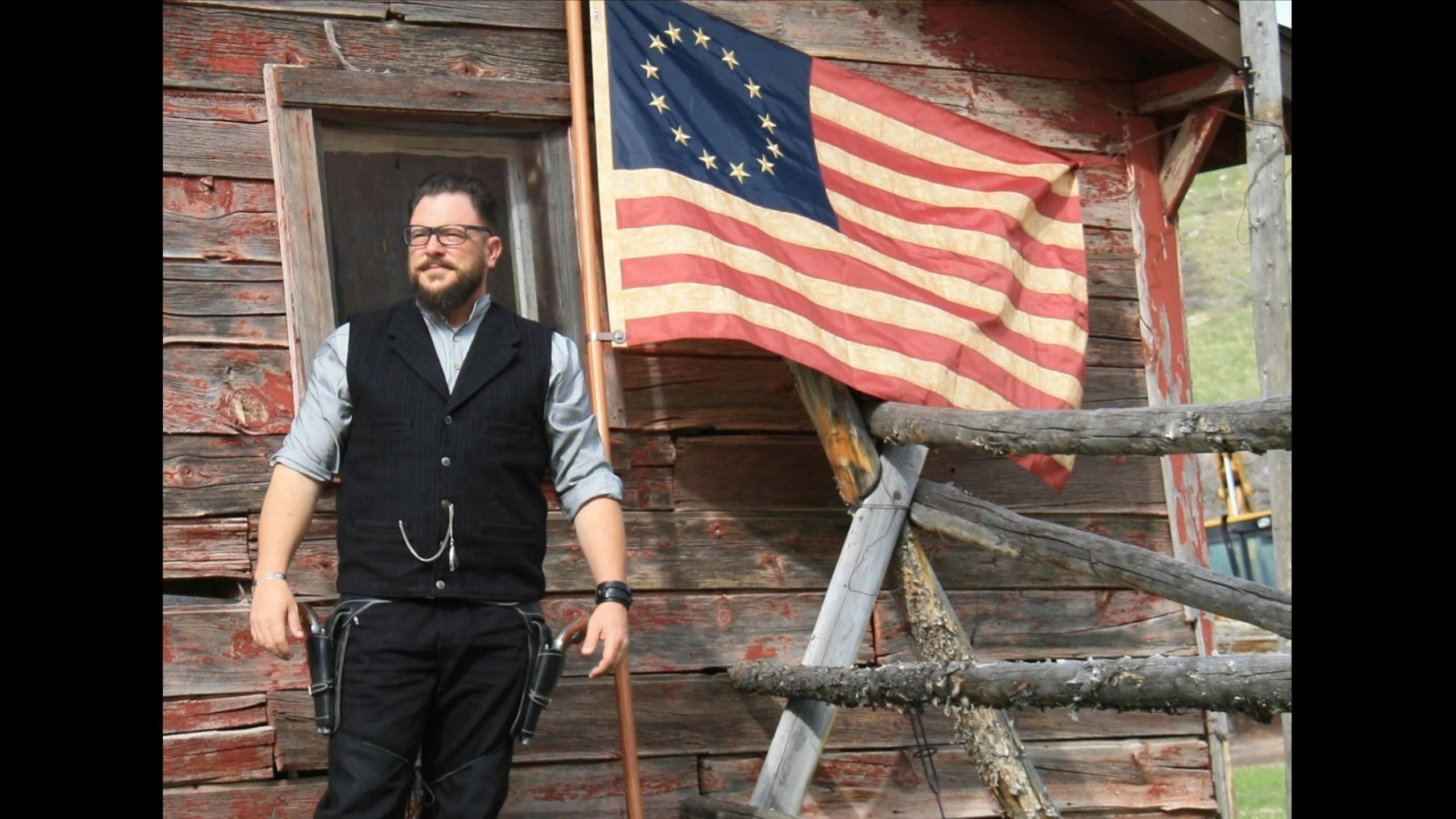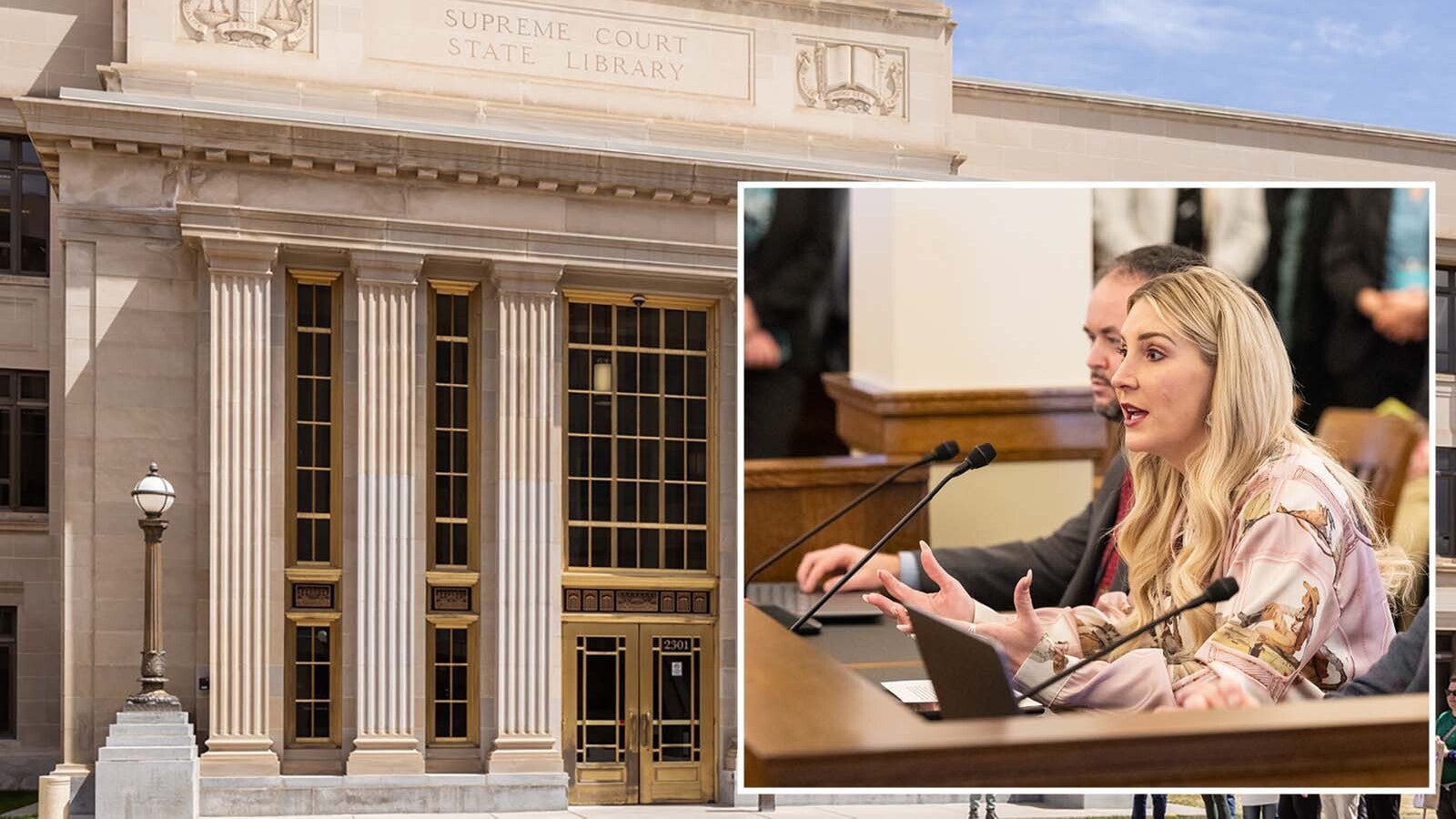By Leo Wolfson, State Political Reporter
Leo@Cowboystatedaily.com
State GOP committeeman Joey Correnti has drafted a framework for legislation that would drastically change elections and the power of political parties in Wyoming.
If adopted by a member or committee of the Wyoming Legislature, the resulting bill would make political parties mostly private entities under Wyoming elections law.
Wyoming election laws provide guidelines for how political parties are to elect officers and conduct meetings. Correnti said the laws are over-regulated and infringe on the Wyoming Constitution’s guarantee of political equality in the state.
He said his draft would bridge a stronger connection between elections and party politics, allowing political parties to decide who could run as a member of their parties in general elections, thereby making crossover voting mostly moot.
“This is why it would make crossover voting pointless and why it would combat low Democratic turnout that has been so weak in their primaries,” Correnti said. “It would muddle those robust efforts to subvert other parties’ elections.”
Party Choice
It also would give political parties power to directly appoint officials to fill vacancies in precinct committee positions.
“The party should be able to pick their own nominees,” he said.
In a state where the Republican Party holds a significant majority, the new rules would give the party even more power and say in the outcome of elections. Simultaneously, it also would give it and other political parties more autonomy from state oversight.
“I think the majority of the Legislature is going in the opposite direction,” said state Rep. Dan Zwonitzer, R-Cheyenne, chair of the Corporations, Elections and Political Subdivisions Committee. “I think we’re going the other way from what the (Republican) Party wants. They would like more power as far as choice and we would like to give the people of Wyoming, irrespective of party, more power on that choice.”
A bill was recently drafted in Zwonitzer’s committee that contradicts a few aspects of Correnti’s framework, calling for special elections to fill vacancies.
Correnti said he has talked with various legislators about his framework and some have expressed interest in his proposed bill. He declined to divulge the identity of the lawmakers in deference to the ongoing general election campaign season.
“There are some people working on it,” he said. “It’s gaining traction.”

Title 22
Wyoming’s election codes are dictated by Title 22 of state law. Correnti has proposed dramatically altering this section under his proposal, titled “Political Party Equality Version of Title 22.”
Jennifer Lowe, executive director of the Equality State Policy Center, said although Title 22 isn’t perfect, it’s served the people of Wyoming well.
“We support changes that elect candidates who represent the greatest number of Wyomingites,” she said.
Sen. Brian Boner, R-Douglas, also is a member of the Corporations committee and agrees, saying he thinks Title 22 works as now written.
“The party statutes that come into play are carefully drafted with balance, and I think it should stay that way,” he said.
In January, the state GOP passed a resolution to repeal language in Title 22 that causes “political inequality.”
Under Correnti’s plan, major and minor political party designations would be eliminated, which he said unjustly allows the state to treat political parties differently based on their size. Under his plan, parties would gain an “established” status by fielding candidates for either U.S. House, Senate, governor, secretary of state or Wyoming Legislature in two consecutive general elections cycles.
At first glance, it may seem this change would benefit the Wyoming Democratic Party in the short term, which is technically at risk of losing its major party status in the upcoming general election, after rampant crossover voting during the primary led to 94% of the turnout being Republican. In reality, the party is unlikely to lose its status based on election data from recent years showing a much higher turnout for Democrats in general elections than primaries.
The change could elevate the status of minor political parties like the Constitution and Libertarian parties to a small degree. Minor political parties are not allowed to participate in Wyoming’s primaries. Correnti said the proposed framework would eliminate partisan primary elections. Under current law, voters can’t elect third-party candidates until the general election in Wyoming.
“People are confused why they don’t get the ballot of the Constitution Party in the primary election,” Correnti said.
He said under his framework, “the Constitution Party may lose candidates. It may turn into something else, but at least it’s the voice of the people.”
Thinning The Herd
Correnti’s framework would require political parties to determine who gets to run for their parties during general elections. This process would take place through county and state party conventions, similar to the current process used for electing delegates.
“There’s a process to thin the herd,” Correnti said.
Under current Wyoming law, political candidates with the most votes in the primary election advance to the general.
Correnti argued that people would still have an opportunity to be elected to office through a grassroots process that represents the people. He said the process would build a stronger relationship between the people and political parties.
“Power and unity,” he said. “That will be what decides the (party’s) central committees. That power could change the makeup of the party at any time. Democrats could take over the Republican Party as long as they follow the process.”
Although Correnti is technically correct, the number of people who participate in county party conventions is traditionally far fewer than 10% of the number of people who vote in primary elections.
Under the framework, the chairman of a state party and their party members would certify which candidates get to run for U.S. Senate, U.S. House, all executive state and legislative offices. The chairman of a county party, and their county party members would certify which candidates for elected county offices.
The framework would remove all state law governing the way political parties elect and determine the quantity of their precinct committeemen as well as conduct their meetings and conventions.
It also would forbid people from changing their party registration less than 14 days before a primary election. Under the framework, parties could decide how competitive they would like their primary races to be. It would prohibit candidates who ran and lost in any primary election from having their name printed on a general election ballot.
“Power and unity. That will be what decides the (party’s) central committees. That power could change the makeup of the party at any time. Democrats could take over the Republican Party as long as they follow the process.”
Joey Correnti, State GOP committeeman
Effect
The state GOP has become more conservative in recent years, openly opposing members from the moderate wing of the party and sometimes refusing to recognize them as Republicans. If passed, the legislation may cause the moderate faction to splinter off and create their own party so they can participate in primary elections.
Correnti said deciding primary candidates at the party level would allow the state to save extensive ballot printing costs associated with crowded primary elections.
The framework achieves similar goals to legislation crafted by state Rep. Chip Neiman, R-Hulett, last year that, if passed, would have instituted runoff elections in the state.
The framework, like Neiman’s bill, moves up primary elections and allows parties to electnot only their favorite, but preferred candidates.
Lowe said her organization does not support runoff elections, which are more expensive and lead to lower voter turnout. She said it does support changes to state law that would initiate open primaries with ranked choice voting.
“ESPC will always support policies and legislation that increases voter participation and election competitiveness that generates policy makers who represent the greatest number of people living in the state,” she said.
Public vs. Private
Correnti said political parties should be treated like more private entities like the American Legion and Veterans of Foreign Wars organizations.
Rod Miller, a former Wyoming land policy advisor to two governors and Cowboy State Daily columnist, said he would support total privatization to Wyoming’s political parties and removing all reference to political parties in Title 22.
“The parties always characterize themselves as private organizations,” he said. “They don’t want the state monkeying around in their business.
“There should be no legal relationship between a sovereign state government and private political parties.”
This topic is one of the few that Correnti and Miller somewhat agree on.
“We both agreed we need to get the government out of the party processes,” Correnti said. “That’s one of the few things we agree upon since the beginning.”
The critical nuance between Miller and Correnti’s ideas is that Miller’s wouldn’t give political parties any more power or the ability to directly elect or nominate candidates.
“They’re trying to use state statute to influence the Republican Party,” Miller said.
Likelihood
Correnti admits his framework has a long way to go as far as determining exact languageand how his ideas would exactly fit into law. But he’s serious about the proposed legislation and said he will try to have it addressed in the upcoming legislative session. Delaying it until the 2024 budget session would result in the legislation not going into effect until the 2026 election cycle at the earliest.
Zwonitzer said he wouldn’t be likely to consider any legislation incorporating Correnti’s ideas unless it came from a sitting legislator.
“If he could ask a legislator to redraft it (Title 22),” Zwonitzer said. “That’s a lot to ask, to ask a legislator to redraft our elections code to take political parties out.”
Based on bills recently drafted by the board, most of the current Corporations Committee is aligned with Zwonitzer’s perspectives on elections. The makeup of the committee may change significantly in the next session, however, as at least six of its 14 members are changing because of lawmakers retiring or being voted out of office. It is up to the Senate president and the speaker of the house to decide who is on a particular committee and who gets to be its chair.
Boner is not up for reelection this year and does not favor Correnti’s legislation. He said it contradicts his efforts to not only make sure elections are as secure as possible, but also that the public’s perception of this civic duty is just as secure.
“It contradicts everything I’ve been doing to make elections more secure and run with integrity,” Boner said.
Editor’s note: This story has been corrected to reflect the proposed changes to Wyoming’s election process would affect general elections, not primary elections. The process for vacancy appointments would be unchanged except for party precinct positions, which would be determined by parties.





